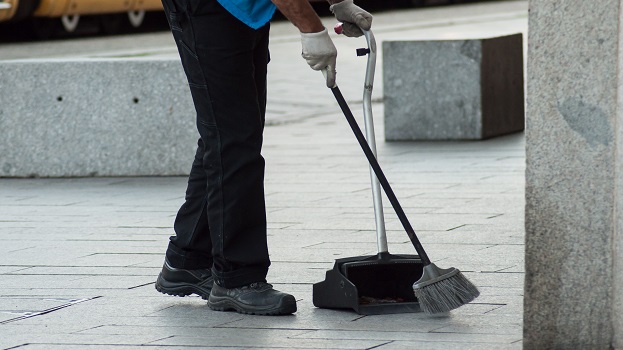Lone working on site away from home can be especially challenging. Here's what you need to know to help you stay safe.

As people self-isolate because of Covid-19, others may find their shifts are stretched and colleagues are unavailable. This means some workers will be out on site having to work alone, without close or direct supervision, for the first time. Whether you are a seasoned lone worker or new to the situation, think about how to stay safe and well while working on your own away from home. We have gathered some useful tips to help.
Get to know procedures and expectations
It’s important to look after your own health and safety but employers have a responsibility towards lone workers, which includes contractors, freelancers and anyone self-employed who is working for them. If you aren’t briefed about it, ask your employer to explain their lone working practices and procedures and how they relate to your role. Ask again if you need further clarity.
The Health & Safety Executive has produced guidance for employers responsible for lone workers, in particular Protecting lone workers (INDG73), as well as guidance for workers. There is also specific guidance for employers to be aware of, for example about fatigue factors from the Office of Rail and Road and useful resources for road vehicle drivers at the Driving for Better Business website.
Consider first aid
Find out how to get first aid should you need it while working alone and what to do in case of an accident or injury. Ask your employer about this.
Keep in contact
One of the most obvious impacts of working alone is the feeling of isolation it can give. This could be even more noticeable if Covid-19 restrictions make it difficult or impossible to meet loved ones who don’t live with you after work hours. Stay connected to colleagues and speak to friends outside of work – even if it is at a distance, over the phone or digitally.
Not only is being connected good for your mental health but it is also important if you fall ill or have an accident at work, so that people know what’s happened and where you are.
Some companies have a buddy system, where if you’re working alone you have a designated contact to check in with from time to time who can make sure you are ok. Other places provide phone apps that have a similar purpose. These also help with managing shifts and preventing fatigue.
Make sure at least one other person knows what you’re doing and where you are at any time.
Take proper breaks
Without the camaraderie of colleagues, it can be easy to forget to take the right number of breaks at the right times. If you’re on your own you may also be tempted to cut breaks short, ‘to get more done’ or ‘just get this finished’. However, it’s always a good idea to take your break fully as scheduled – this will guard against fatigue and will actually help you to be more productive.
Eating regularly instead of skipping meals, and ideally choosing food to give you a healthy energy boost, will keep you alert and aware of your surroundings and tasks. This will help prevent distraction and accidents.
Stay alert
It’s a sad fact that there’s a risk of violence towards lone workers, as well as other crimes including theft when cash is carried. Remote locations can be risky with potential antisocial behaviour but, regrettably, violence from passengers is another possibility. You may feel that specialised training could help you with conflict avoidance and prevent incidents escalating – ask your employer if they can provide this.
Report incidents
If there are any problems or incidents while you’re working alone, report them to the right channels – which can include internally to the company, to CIRAS or even the police. Knowing how the company you’re working for expects you to report issues is important, but you can contact CIRAS directly if you want to raise a health, safety or wellbeing concern confidentially to an independent organisation.
However you raise your concern or report an incident, this information helps companies take the right action to protect you and your colleagues. It can reveal patterns that are evidence for changes to ways of working or the way a location is set up. This will benefit lone workers at your workplace in the long run.
Find out more
Why speaking up about your safety concerns is important
Workplace abuse: a growing crisis?
Mental health and wellbeing: where to get help – including useful contacts if you are a transport or construction worker
Tags
- Person's Environment
- Rules and Procedure
